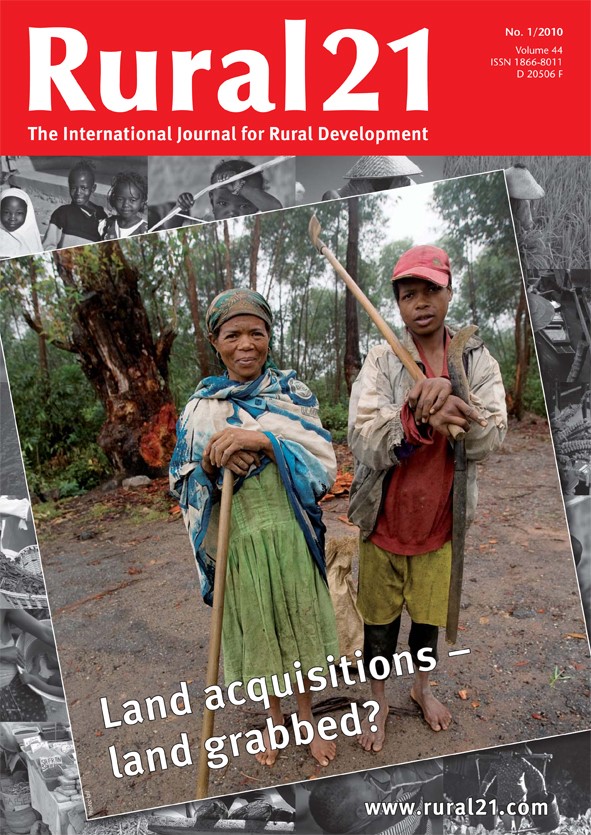DLG-Verlag was founded in 1952 as a subsidiary of DLG e.V. (Deutsche Landwirtschafts-Gesellschaft - German Agricultural Society) with its headquarter in Frankfurt/ Germany. The publishing company provides expertise for the agricultural and food sector.
With its subsidiaries Max-Eyth-Verlag and DLG-Agrofood Medien GmbH the DLG-Verlag offers books and magazines, as well as catalogs of the DLG's international DLG exhibitions.
Members:
Resources
Displaying 226 - 230 of 316Rethinking rural and agricultural finance - The African case
In order to boost agricultural growth in SSA, further investment in the agricultural sector is urgently needed. The mark-up of ODA funds is a stepping-stone in this regard. However, ODA should function as a catalyst for further private investments and should be used to assist recipient governments in building the institutional framework for attracting private investment and promoting balanced growth. Important success factors include further advances in improving domestic banking and agricultural risk management systems.
The rush for farmland
Since the 2008 food price crisis, foreign investors have been acquiring more and more land in poor countries for producing foodstuffs and biofuels for their own use. Such investments have the potential to promote rural development and food security worldwide. By the same token, however, there is the danger of countless small farmers losing their land, of food insecurity increasing in many places, and of social and ecological systems collapsing through pure "land grabbing".
An opportunity for sustainable growth in Africa
African Governments are planning to leapfrog development and move to a middle income economy in a short time. This requires a sustainable strong economic growth, based primarily on African agricultural resources and initially with huge resources from outside, partly provided by donors but mainly from the private sector through sustainable and responsible investments. All actors should engage in a serious dialogue on how to facilitate and create good investments in order to attract the necessary resources for development.
African farmers develop their own rice cultivars
Nerica – New Rice for Africa is the name of the great biotechnological success in rice breeding. What scientists created in the lab using modern methods, namely hybrids of African rice and Asian rice, had already come into being decades ago by chance in West African ?elds.
Big push for development or erosion of local livelihood?
The recent upsurge in Foreign Direct Investment (FDI) in land raises the hope to bridge the gap of decades of underinvestment in developing countries’ agricultural sector, but it may also threaten host countries’ food security and increase the vulnerability of the rural population. Based on four country case studies conducted by Deutsche Gesellschaft für Technische Zusammenarbeit (GTZ), this article illustrates distinct impacts of large-scale investments in agricultural land.


